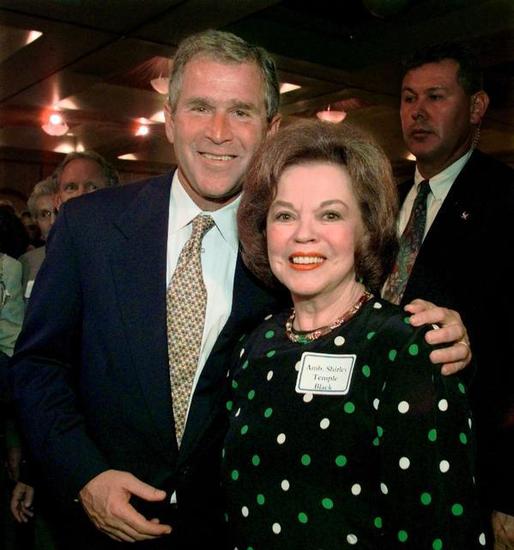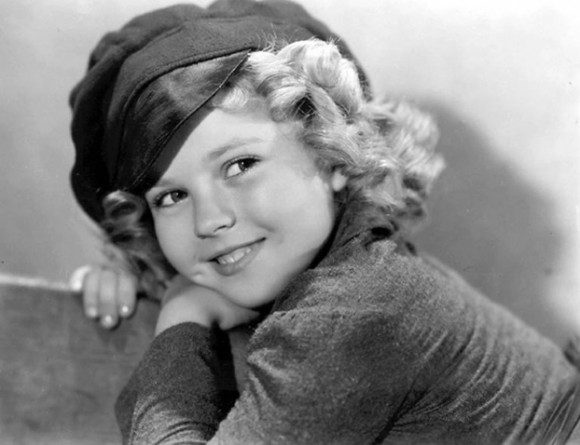Famed child star and longtime U.S. diplomat Shirley Temple Black died late Monday night of natural causes at the age of 85. Many will eulogize her death; many already have. Few will do it better, I’ll venture, than the official statement put out on her website, which recalls not only her grade school stardom, but her remarkable work outside the same public eye that pervaded her early life, but in that same interest, as an activist and diplomat. Neither can I speak extensively of any firsthand remembrance I have of Temple or her public impact; like most writing today, my experience with the world which made Temple a star is secondhand, at best. But if I may be allowed to look back at that time and place in our history, I’d like to suggest that in many ways it was Shirley Temple who epitomized the hopes of and for her generation.
Temple rose to stardom, of course, as a child actor in the 1930s, appearing in more than 25 feature films before her teenage years. In a world that was suffering from the Great Depression and dealing with the rising tensions which led to World War II, Temple was there smiling, singing, and dancing. Indefatigably positive, watching scenes of old Shirley Temple movies, it’s impossible to miss the broad smiles of her elder co-stars, smiles which are very clearly something more than mere acting. To a generation troubled by war and poverty, Temple represented a hope for the future that could sail confidently through the troubles of the times.
It’s interesting, and perhaps even telling, that it was as Temple began to outlive those more innocent years of childhood that her star began to fade. Temple was by no means absent from the big screen in the ’40s, but is the prolific, curly haired child for whom the wold was full of joyous adventure we remember today, not the young woman troubled by her brother’s death in the likes of The Story of Seabiscuit, one of the last features Temple starred in (released in 1949).


What we should be left with from Temple Black’s life is not that she was perfect, but that hope is not something only manufactured in Hollywood. As a child, she was a symbol; as an adult, she lived out that ideal. Temple Black will be missed because she was not an empty inspiration, but rather one that was as active in creating the change that her childhood characters made the world wish for.

